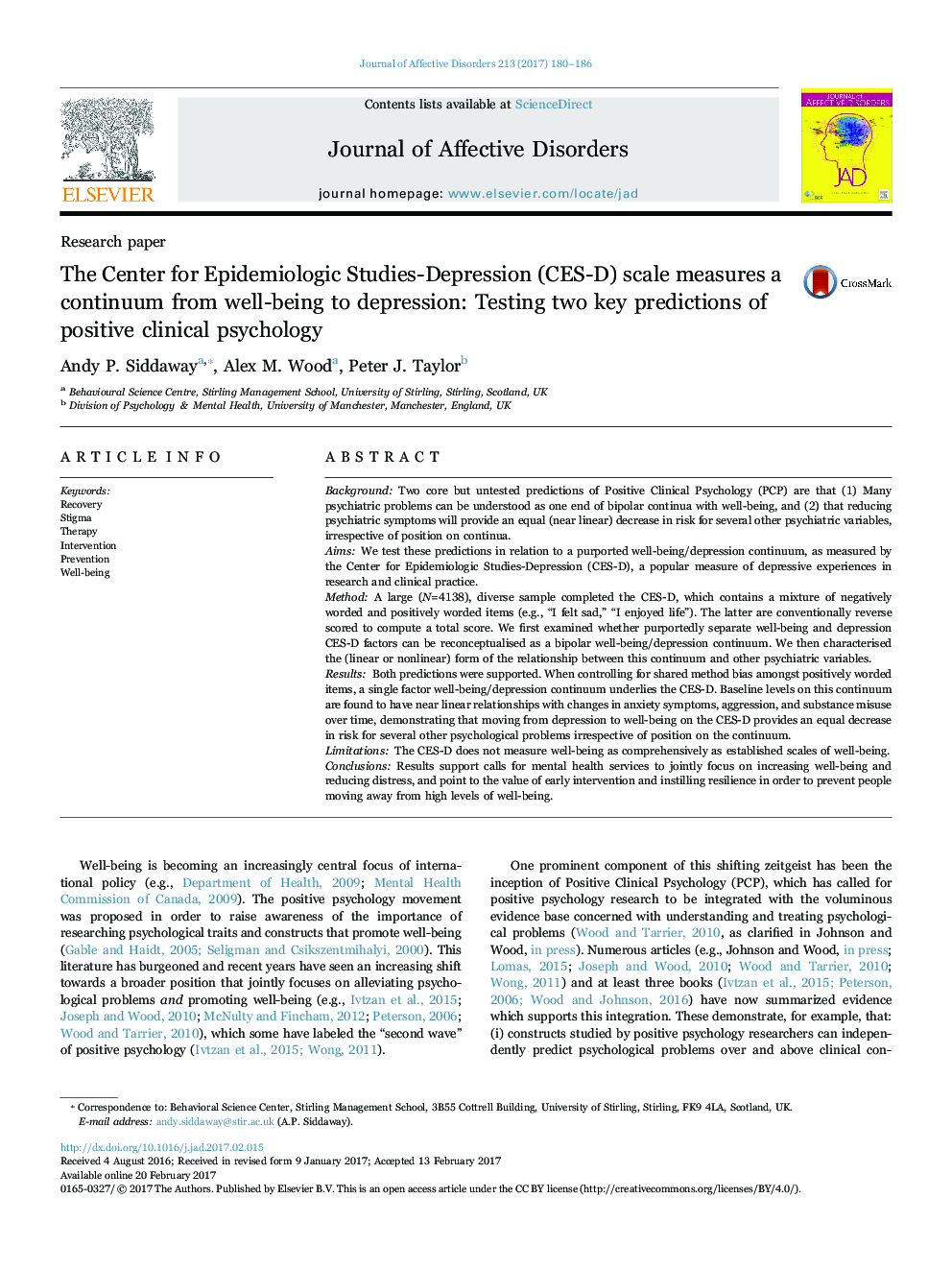| Article ID | Journal | Published Year | Pages | File Type |
|---|---|---|---|---|
| 5722245 | Journal of Affective Disorders | 2017 | 7 Pages |
â¢Two key predictions of Positive Clinical Psychology (PCP) are supported.â¢The Center for Epidemiologic Studies-Depression (CES-D) measures a depression/well-being continuum.â¢The continuum has near linear relationships with other psychiatric variables over time.â¢Results support calls for mental health services to jointly focus on increasing well-being and reducing distress.
BackgroundTwo core but untested predictions of Positive Clinical Psychology (PCP) are that (1) Many psychiatric problems can be understood as one end of bipolar continua with well-being, and (2) that reducing psychiatric symptoms will provide an equal (near linear) decrease in risk for several other psychiatric variables, irrespective of position on continua.AimsWe test these predictions in relation to a purported well-being/depression continuum, as measured by the Center for Epidemiologic Studies-Depression (CES-D), a popular measure of depressive experiences in research and clinical practice.MethodA large (N=4138), diverse sample completed the CES-D, which contains a mixture of negatively worded and positively worded items (e.g., “I felt sad,” “I enjoyed life”). The latter are conventionally reverse scored to compute a total score. We first examined whether purportedly separate well-being and depression CES-D factors can be reconceptualised as a bipolar well-being/depression continuum. We then characterised the (linear or nonlinear) form of the relationship between this continuum and other psychiatric variables.ResultsBoth predictions were supported. When controlling for shared method bias amongst positively worded items, a single factor well-being/depression continuum underlies the CES-D. Baseline levels on this continuum are found to have near linear relationships with changes in anxiety symptoms, aggression, and substance misuse over time, demonstrating that moving from depression to well-being on the CES-D provides an equal decrease in risk for several other psychological problems irrespective of position on the continuum.LimitationsThe CES-D does not measure well-being as comprehensively as established scales of well-being.ConclusionsResults support calls for mental health services to jointly focus on increasing well-being and reducing distress, and point to the value of early intervention and instilling resilience in order to prevent people moving away from high levels of well-being.
